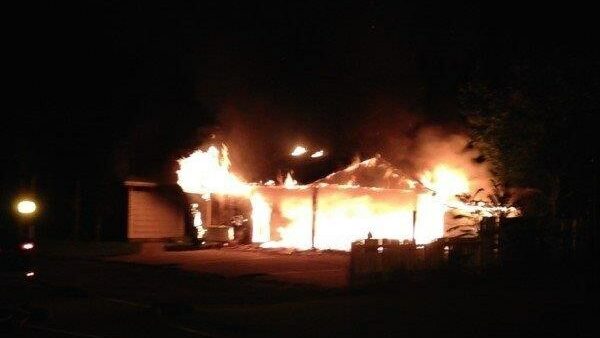Zero Margin for Error

By Mark Wollenberg, National Director of Church Mobilization
I had an eye opening experience recently about how close the vulnerable are to being on the street – how, for the poor, there is zero margin for error without extreme consequences.
A member of my extended family is living on a fixed income due to a serious injury that happened over five years ago. He was doing quite well making ends meet and squeaking by on the monthly stipend from the government.
Then on the night of his fiftieth birthday the house that he, and five other people, were living in was engulfed in flames. The house fire started at around 1AM, and they managed to escape with only the clothes on their back as the flames consumed the house. They were all given 3 nights accommodation at a local hotel and $150 for food and clothing. They were informed that once this one time allocation was used up, they were on their own to find a new place to live. This was made even more challenging by the fact that most of their identification was destroyed in the fire, along with bus passes and bank cards.
Fortunately we were able to help provide a temporary place for our family member to stay and look for a new living situation. However, he told us that his roommates had no family members to assist them and, because emergency housing was full and the local mission had no more beds, they were on the street.
At this point, I was reminded that the vulnerable and marginalized in our communities, in Canada and around the world have no room for even one unexpected negative event in their lives. They are one fire, one flood, or one violent assault away from being forced onto the streets of their city or town. There is no buffer or contingency plan to fall back on in these situations.
I also thought about the widows in Africa that have their land violently stolen by thugs and greedy neighbours. They have no backup plan when violence forces them off their land. I understood again how important the work that IJM does in coming along side widows and the vulnerable in the communities where we work. To assist them in practical ways with emergency supplies, and then to walk with them through the often complicated maze that is the local justice system in order to get their land returned. It is such an enormous benefit and help to them.
Just as our family member was so very grateful to have us around to help him after the house fire, I know how grateful the vulnerable people are that IJM is there to help.
So when you read about a house fire or an apartment building catching fire in your community ask yourself how many people have no margin in their lives for this kind of tragedy. Think about how you, or perhaps your faith community, can assist those who might find themselves on the street.
Learn how you can make a difference and stop everyday violence by watching Gary Haugen's TED Talk.